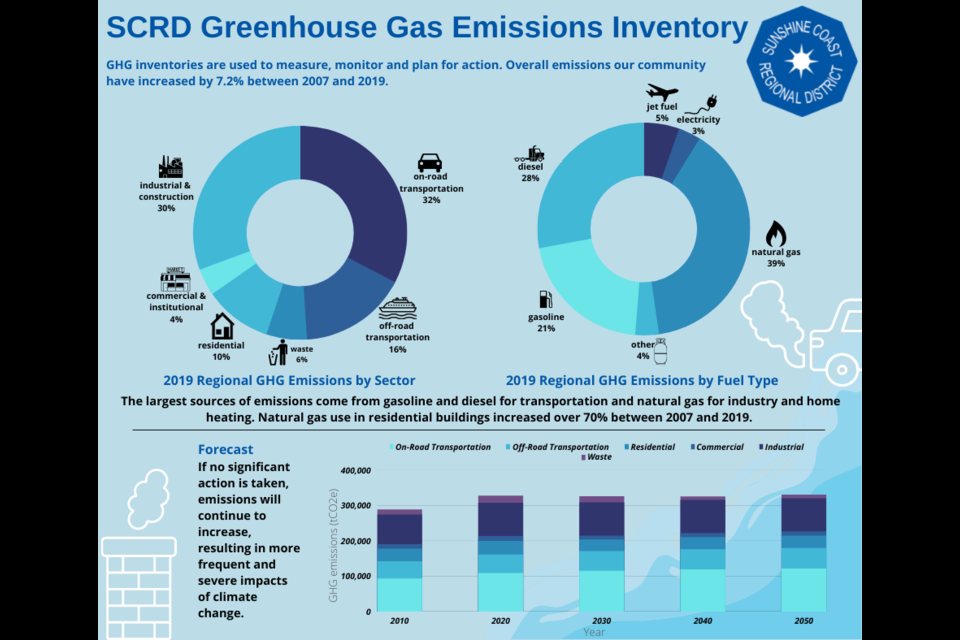In the same week the United Nations secretary general António Guterres declared the world at “a moment of truth” regarding climate change, Sunshine Coast Regional District (SCRD) elected officials unanimously recommended adoption of its Community Climate Action Plan (CCAP).
That document was developed by staff working with the community and other agencies, to advance the SCRD's 2023-27 Strategic Plan’s “Climate Resilience and Environment” lens and meet business needs. The plan has 15 goals, 25 actions and 58 supporting actions across themes of governance, adaptation and mitigation in infrastructure, water, ecological stewardship, connectivity and health, mobility and carbon dioxide removal.
The local authority endorsed the plan at a special committee meeting on June 3 as a follow-up to its own declaration of a climate crisis made earlier this year. Meeting chair and Gibsons area director Silas White maintained his current focus on addressing issues with the region’s water supply and received support from the committee to add in a recommendation that staff present a 2025 budget proposal to explore the potential for a natural assets evaluation of the Chapman and Edwards watersheds.
The meeting was the regional authority's second look at the plan. White noted that since the first draft came forward, staff have integrated and aligned the document with the board’s recently adopted strategic plan.
A range of recommendations
Along with introducing the climate action plan, the committee recommended Official Community Plans (OCP) incorporate science-based targets for greenhouse gas emission reductions.
Also getting the committee nod was a range of “core actions” to support clean energy initiatives, document the roles natural assets and green infrastructure could contribute, and “support the inclusion of ecological stewardship, habitat connectivity and restoration in new land use planning policies and regulations." Development of material to inform the community on the plan is recommended to come forward within the next three months and review of CCAP is to be completed in three to five years based on annual progress reporting.
In response to director questions about integrating natural asset planning into OCP renewals, director of planning Ian Hall commented on the benefits of having “excellent working relations” with many experts in the community. He singled out Town of Gibsons, which he said has “staff that are national if not world leaders in the area of sustainable development and natural assets management."
Ideas for future initiatives
Some directors at the meeting appeared ready to move immediately into suggestions of projects they wanted to see become part of the CCAP.
In the area of reducing emissions from road transportation, a sector responsible for 32 per cent of the region's GHG emissions, Area D (Roberts Creek) director Kelly Backs suggested a park-and-ride lot be built on SCRD property near the Creek community hall. In addition to making it easier for nearby residents to use transit rather than single occupancy motor vehicles, he said the site could double as a parking lot for events at the adjacent halls.
Area E director Donna McMahon’s favoured seeing the board "step up" and become more strategic and effective in advocacy to the province, as she said she sees a need for “transformative change to how transit is delivered” and in how road infrastructure is designed.
At the meeting, elected officials heard from Vancouver Coastal Health medical health officer Dr. Moliehi Khaketla about how to deliver community services while viewing those efforts through the “Climate Resilience and Environment” lens, which is integral to its recently adopted strategic plan.
Summing up the discussions, Area B (Halfmoon Bay) director Justine Gabias stated recommendations on the CCAP were a “spark that leads to greater things."
Public attendees applauded as the committee closed its discussions. The recommendations will be up for consideration of board adoption at an upcoming meeting.



